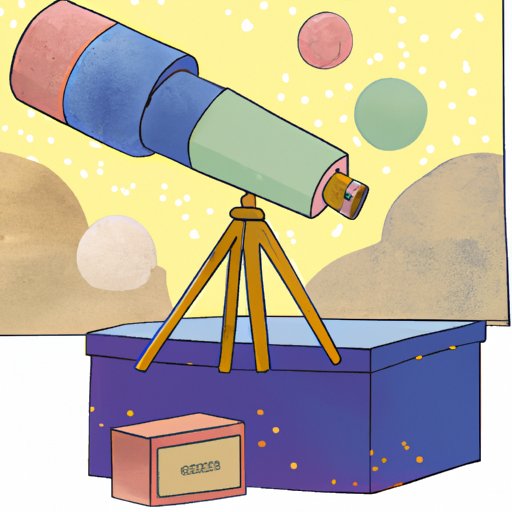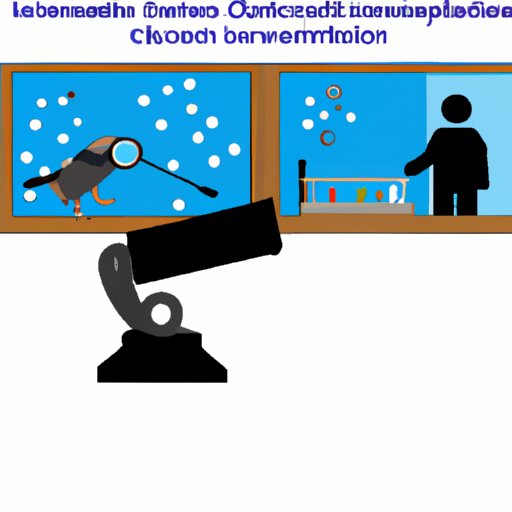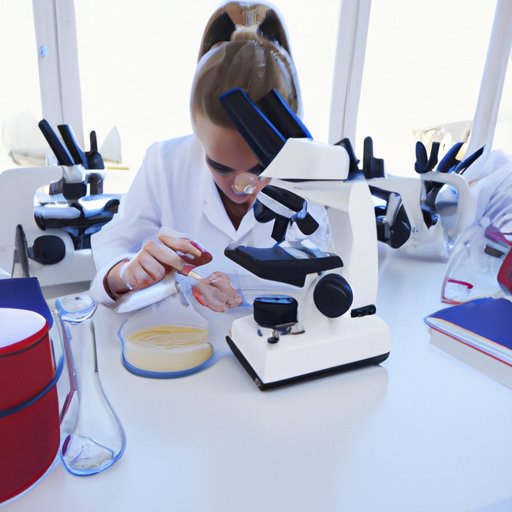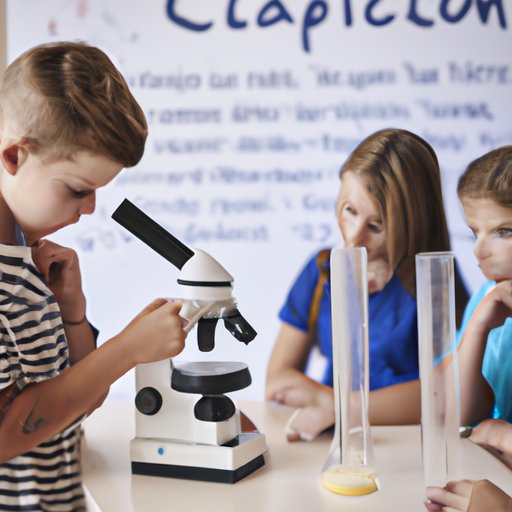Introduction
Observation is an essential part of scientific research. It involves gathering information about a phenomenon or object through careful observation and measurement. But what does observing mean in science? What role does it play in scientific practice? In this article, we explore the meaning of observation in science and its value for understanding the universe.
Exploring the Meaning of Observation in Science
In order to understand the role of observation in science, it is important to first define what it is. According to the Oxford English Dictionary, observation is “the action or process of carefully noticing or studying something”. In science, observation refers to the act of collecting data by monitoring and recording a phenomenon or object. This can include anything from measuring temperature with a thermometer to counting the number of stars in a galaxy.
It is important to note that observation is not the same as other forms of scientific measurement. For example, experimentation involves actively manipulating a system to test a hypothesis, while observation simply records changes that occur naturally. Additionally, observation does not involve any interpretation or judgment on the part of the observer – it simply records the facts as they are.

How Scientific Observations Help Us Understand the Universe
Scientific observation plays a key role in helping us understand the universe. By collecting data through observation, scientists can gain insight into the behavior and properties of objects and phenomena. This data can then be used to develop theories, make predictions, and draw conclusions about the world around us.
There are many different ways that scientists use observations to gather data. They may observe objects directly through telescopes, microscopes, and other instruments, or they may study data collected by satellites and probes. Observations can also be made indirectly, such as through mathematical models or computer simulations.
One example of an observational study is the Sloan Digital Sky Survey (SDSS), which uses an array of telescopes to map the Milky Way galaxy. The SDSS has enabled astronomers to make precise measurements of stars and galaxies, leading to new insights into the structure and evolution of the universe.

The Value of Observation in Science
Observation is a powerful tool for scientific discovery. By collecting data through observation, scientists can gain a better understanding of how the universe works. This helps them develop new theories, make predictions, and uncover new phenomena.
For example, astronomer Edwin Hubble used observations of distant galaxies to show that the universe is expanding. His work revolutionized our understanding of the cosmos and paved the way for the development of the Big Bang theory.
The Role of Observation in Scientific Practice
Observations are also important in scientific experiments. By making accurate observations of a system, scientists can measure changes over time and identify patterns. This can help them form hypotheses and test theories. For example, biologists may observe the behavior of animals in the wild to better understand their behavior.
Observations also have practical applications. For example, doctors use observations to diagnose diseases and monitor patients’ health. Engineers use observations to evaluate the performance of structures and machines. And meteorologists use observations to forecast weather and predict climate change.
Analyzing the Impact of Observation on Scientific Research
Accuracy is a key factor in scientific observation. If observations are not precise and accurate, researchers may reach false conclusions about their data. Therefore, it is important for scientists to ensure that their observations are accurate and reliable.
Observations also play an important role in evidence-based research. By making accurate observations, scientists can build up a body of evidence to support their theories. This can help them draw more reliable conclusions and make more informed decisions.

Examining the Process of Scientific Observation
Making accurate observations requires careful planning and preparation. Scientists must consider a range of factors, such as the type of instrument being used, the conditions under which the observation is taking place, and the accuracy of the data being collected. Additionally, scientists should avoid common mistakes when making observations, such as relying on subjective judgments or making assumptions about the data.

Investigating the Benefits of Observing in Science
Observation is an invaluable tool for scientific research. It enables scientists to collect data and gain insights into the universe. Additionally, observations can lead to new discoveries and help us understand the world around us.
Observations also have numerous practical applications. They can be used to diagnose diseases, monitor the environment, and predict weather patterns. Finally, accurate observations can help scientists build up evidence to support their theories and draw more reliable conclusions.
Conclusion
Observation is a fundamental tool in scientific research. It enables scientists to collect data, make predictions, and draw conclusions about the universe. By making accurate observations, scientists can develop new theories, uncover new phenomena, and gain a better understanding of the world around us.
If you are interested in learning more about the importance of observation in science, there are many resources available. You can read books and articles about the topic, watch documentaries, or take courses to expand your knowledge. Additionally, you can practice making observations yourself to gain a better understanding of how it works.
(Note: Is this article not meeting your expectations? Do you have knowledge or insights to share? Unlock new opportunities and expand your reach by joining our authors team. Click Registration to join us and share your expertise with our readers.)
